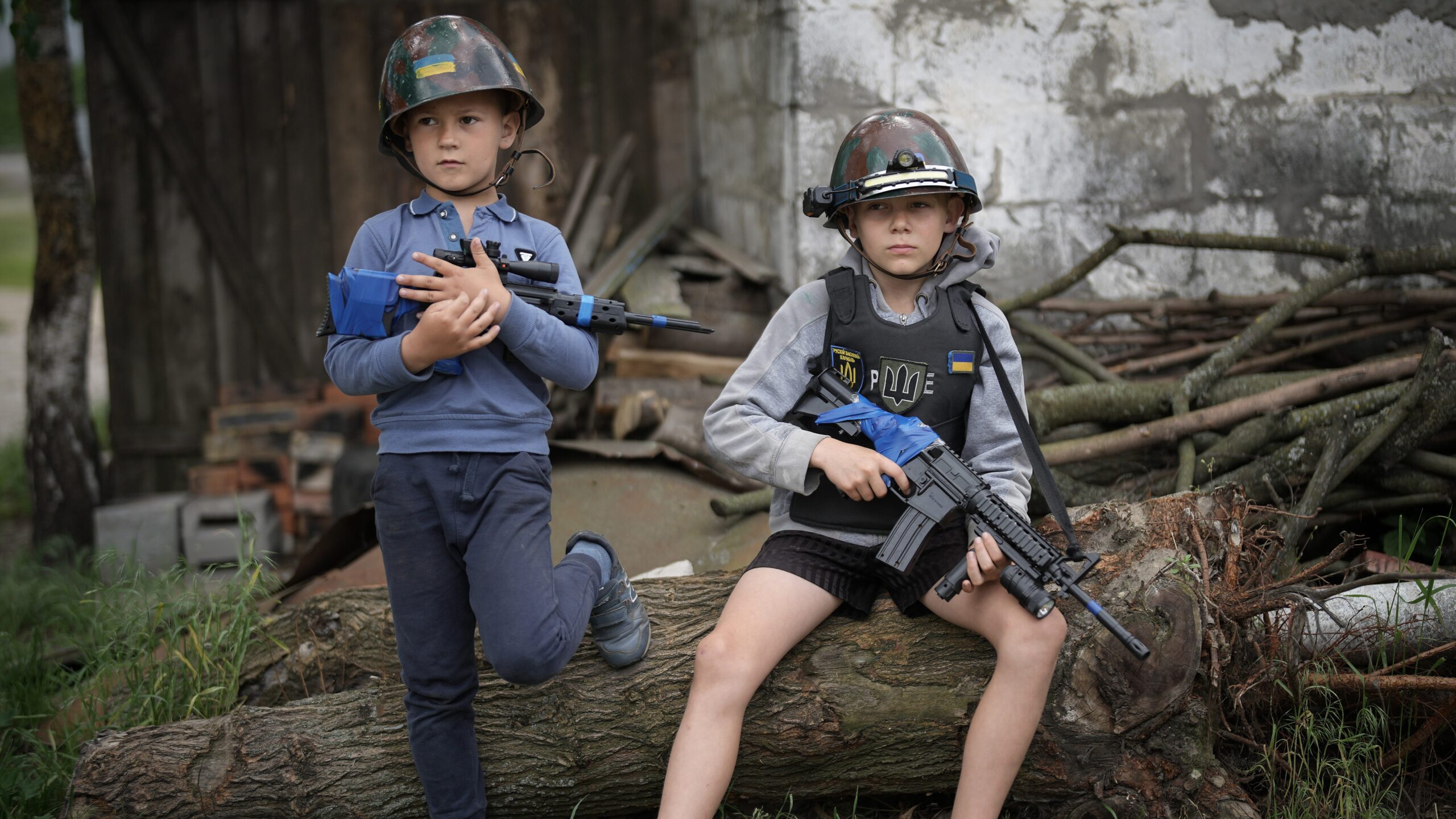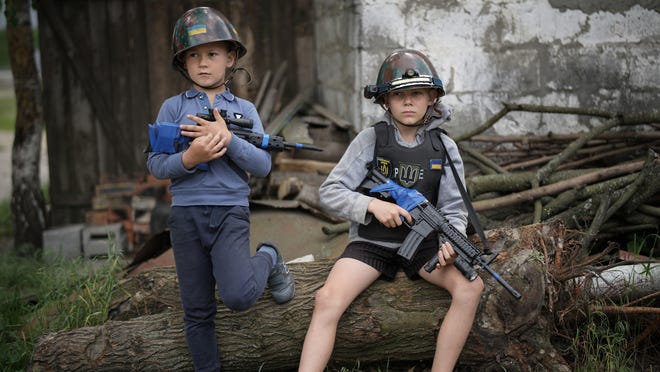“Suicidal” shelling of Europe’s largest nuclear plant must be halted and international inspectors granted access to ensure its safe operation, U.N. Secretary-General António Guterres said Monday.
Moscow and Kyiv blamed each other for a series of recent rocket attacks at Zaporizhzhia Nuclear Power Station that the International Atomic Energy Agency said has created “the very real risk of a nuclear disaster.”
Zaporizhzhia, Europe’s largest nuclear power plant, sits on the Dniper River outside the Russian-occupied city of Enerhodar. The attacks come as the top Russian-installed official in the Zaporizhzhia, Evgeny Balitsky, signed a decree Monday to set up a referendum as soon as next month that would incorporate the region into Russia.
Ukraine President Volodymyr Zelenskyy accused Russia of the attacks and pressed his case that Moscow should be recognized as a state sponsor of terrorism. The Russian embassy in Washington issued a statement blaming Ukraine for the shelling, claiming a “disinformation campaign” in the U.S. media is falsely blaming Russian forces.
“In order to discredit Russia, the Ukrainian authorities do not shun anything, creating a real threat to the nuclear security not only of Ukraine, but of Europe as well,” the statement said.
USA TODAY ON TELEGRAM: Join our Russia-Ukraine war channel to receive updates
Latest developments:
►U.S. Secretary of State Antony Blinken began his three-nation tour of Africa on Sunday in South Africa, one of several countries in the continent that have remained neutral regarding Russia’s war in Ukraine. In recent weeks, Russian Foreign Minister Sergey Lavrov and French President Emmanuel Macron have also visited Africa, seeking support for their positions on the war.
►Three top Russian generals in Ukraine have been removed as poor performance of Russia’s armed forces appears to have led to a shakeup, the British Defense Ministry said Sunday.
►Five civilians have been killed in recent Russian and separatist attacks on cities in the Donetsk region, the part of Donbas still under Ukrainian control, regional governor Serhiy Haidai reported.
►The city of Mykolaiv, an important shipbuilding center close to Ukraine’s largest port in Odesa, is now facing daily Russian bombardments, local officials say.
Embargo eased, Ukrainian grain shipment is first to reach destination
A cargo ship carrying 12,000 tons of Ukrainian corn arrived Monday in Turkey, the first vessel to arrive at its destination under a deal that eased Russia’s tight blockade of Ukraine ports.
The Turkey-flagged Polarnet docked at Derince port in the Gulf of Izmit, three days after setting off from Chornomorsk. The first ship to depart Ukraine, the Sierra Leone-flagged Razoni, left on Aug. 1 but had not reached its destination in Lebanon and was anchored off Turkey’s southern coast, according to the Marine Traffic website.
The ships are sailing under a deal to unblock grain supplies and stave off a potential global food crisis. Ukraine Foreign Minister Dmytro Kuleba said the first ships arrival “sends a message of hope to every family in the Middle East, Africa, and Asia: Ukraine won’t abandon you. If Russia sticks to its obligations, the “grain corridor” will keep maintaining global food security.”
Six more ships carrying agricultural cargo have received authorization to leave Ukraine’s Black Sea ports, carrying more than 236,000 tons of grain. Ukraine has 20 million tons of grain sitting in silos.
Graham, Blumenthal urge Biden to declare Russia a terrorism sponsor
At least one prominent senator from each party is pushing the Biden administration to declare Russia a state sponsor of terrorism over its invasion of Ukraine, and they’re jointly taking their case to the airwaves.
Democrat Richard Blumenthal of Connecticut and Republican Lindsey Graham of South Carolina, both with more than a decade in the Senate, told CNN on Sunday that if President Joe Biden doesn’t get behind the designation, they would work toward getting Congress to pass a bill issuing one. Typically such designations are made by the State Department.
“I hope the president will decide to adopt this stance voluntarily, and he hasn’t taken it off the table,” Blumenthal said.
Graham, who served in the Senate with Biden, was more pointed in trying to coax the president to put more pressure on Russia by adding it to the USA’s current list of state sponsors of terrorism, which includes Iran, North Korea, Syria and Cuba. Inclusion on the list would trigger four categories of sanctions.
“Whether or not we have to do legislation to make it happen – we’re willing to,” Graham said. “I am urging the administration to act now.”
Russia has issued warning against terror designation
Russian Foreign Ministry spokeswoman Maria Zakharova, who has called the notion of designating her country a sponsor of terrorism “idiotic” and “naive,” threatened a break in diplomatic relations between the countries if the U.S. made such a decision.
“Washington risks finally crossing the point of no return – with all the ensuing consequences,” she said last week. “This should be well understood in Washington.”
The State Department says four main categories of sanctions result from a state sponsor terror designation. They include restrictions on U.S. foreign assistance, a ban on defense exports and sales, tighter controls over exports of “dual use items” items with military and other uses and miscellaneous financial and other restrictions.
Contributing: The Associated Press





